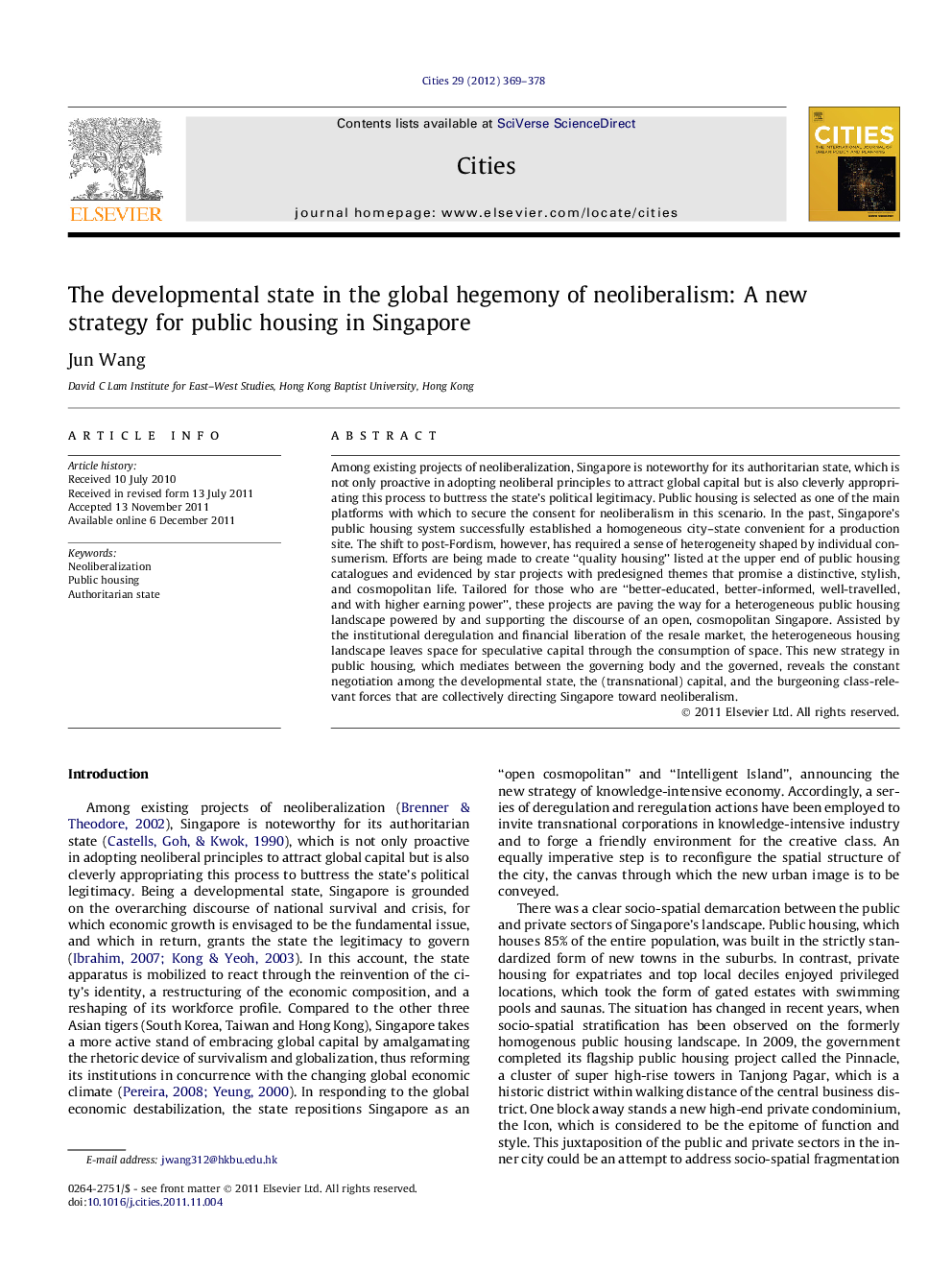| Article ID | Journal | Published Year | Pages | File Type |
|---|---|---|---|---|
| 1008602 | Cities | 2012 | 10 Pages |
Among existing projects of neoliberalization, Singapore is noteworthy for its authoritarian state, which is not only proactive in adopting neoliberal principles to attract global capital but is also cleverly appropriating this process to buttress the state’s political legitimacy. Public housing is selected as one of the main platforms with which to secure the consent for neoliberalism in this scenario. In the past, Singapore’s public housing system successfully established a homogeneous city–state convenient for a production site. The shift to post-Fordism, however, has required a sense of heterogeneity shaped by individual consumerism. Efforts are being made to create “quality housing” listed at the upper end of public housing catalogues and evidenced by star projects with predesigned themes that promise a distinctive, stylish, and cosmopolitan life. Tailored for those who are “better-educated, better-informed, well-travelled, and with higher earning power”, these projects are paving the way for a heterogeneous public housing landscape powered by and supporting the discourse of an open, cosmopolitan Singapore. Assisted by the institutional deregulation and financial liberation of the resale market, the heterogeneous housing landscape leaves space for speculative capital through the consumption of space. This new strategy in public housing, which mediates between the governing body and the governed, reveals the constant negotiation among the developmental state, the (transnational) capital, and the burgeoning class-relevant forces that are collectively directing Singapore toward neoliberalism.
► Re-contextualization and re-articulation of neoliberal principles in developmental state. ► Public housing is reshaped to accommodate neoliberal logic and buttress political legitimacy. ► Social stratification driven by preferential policies that favor the creative class.
